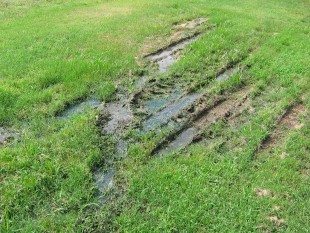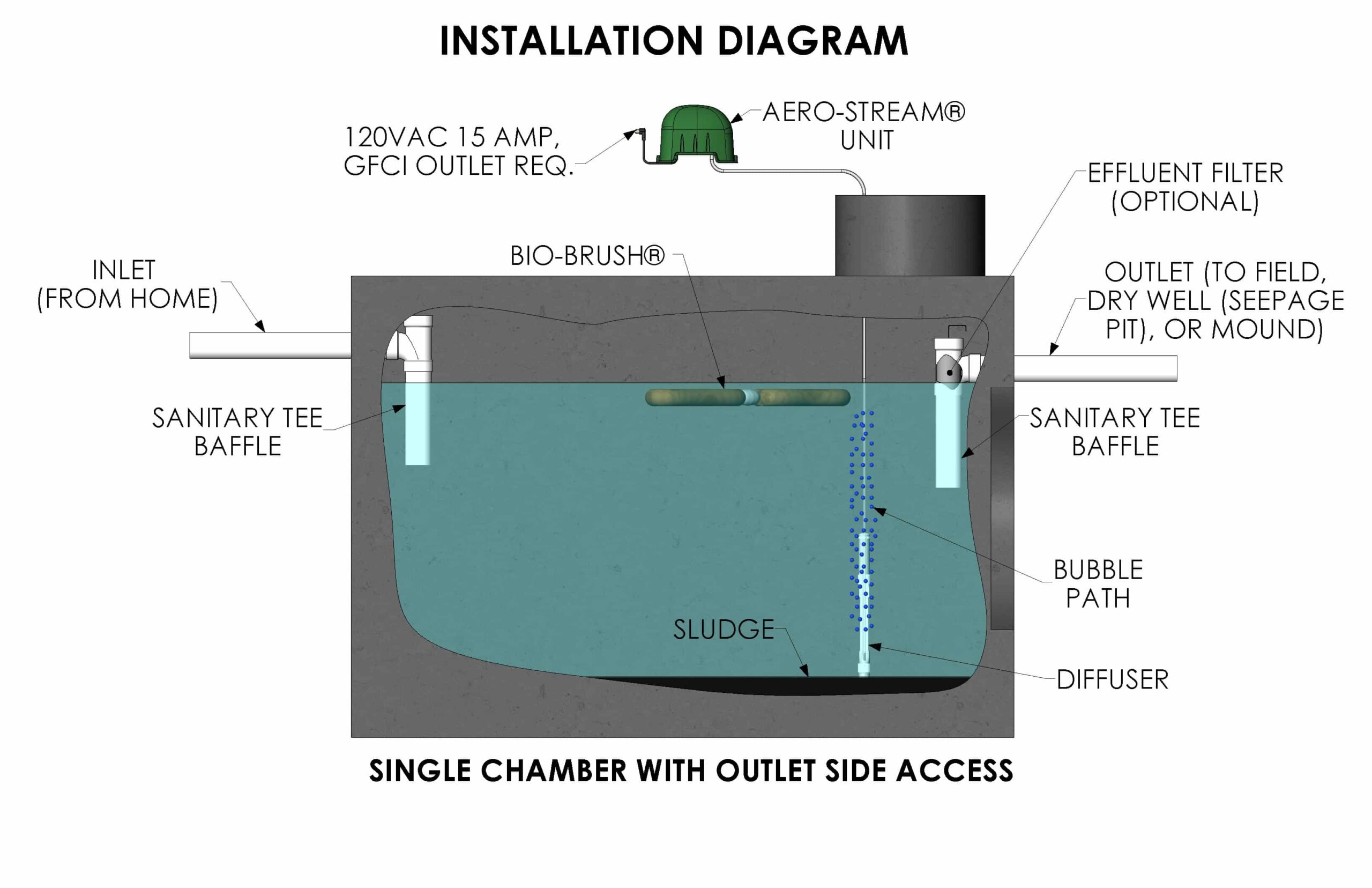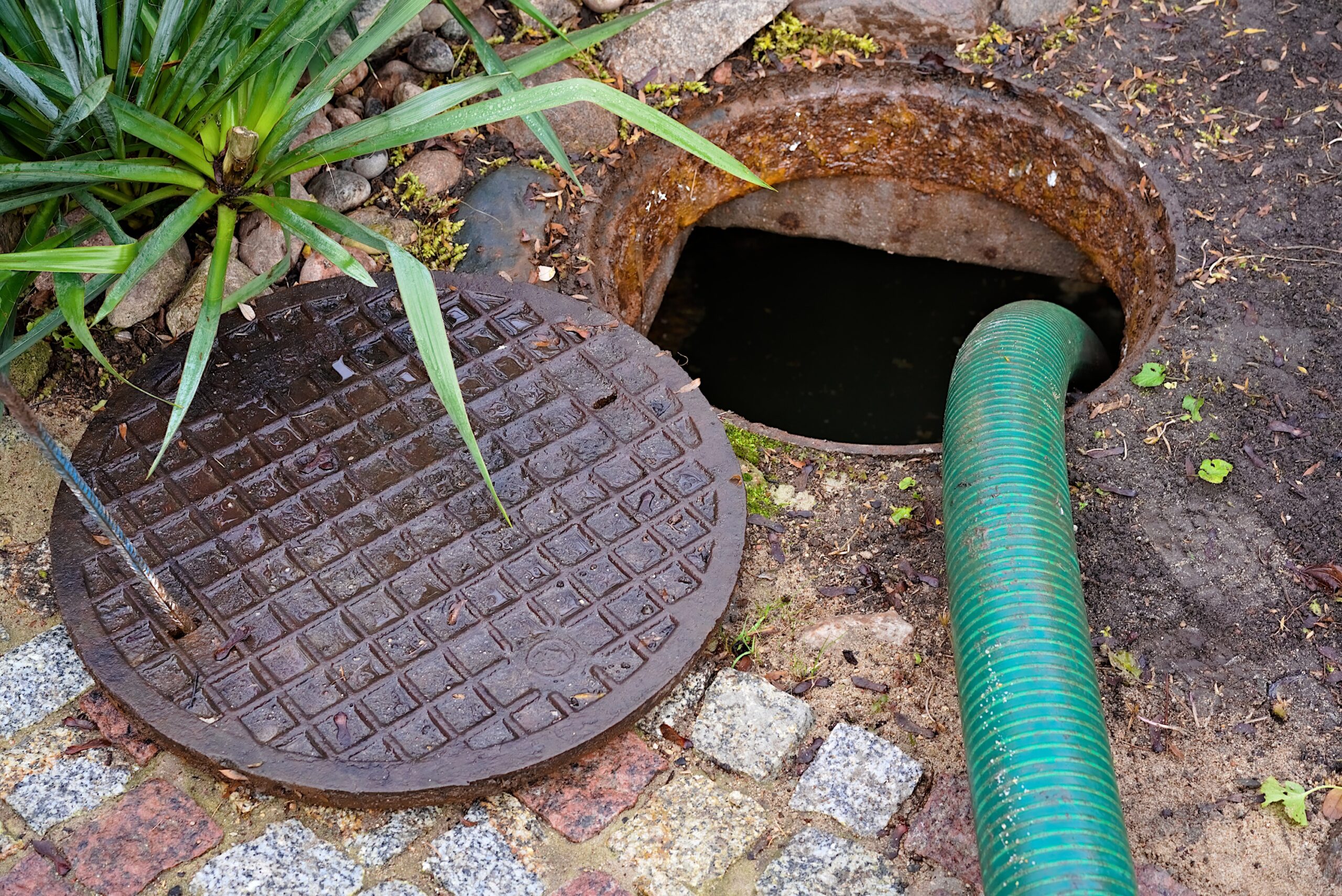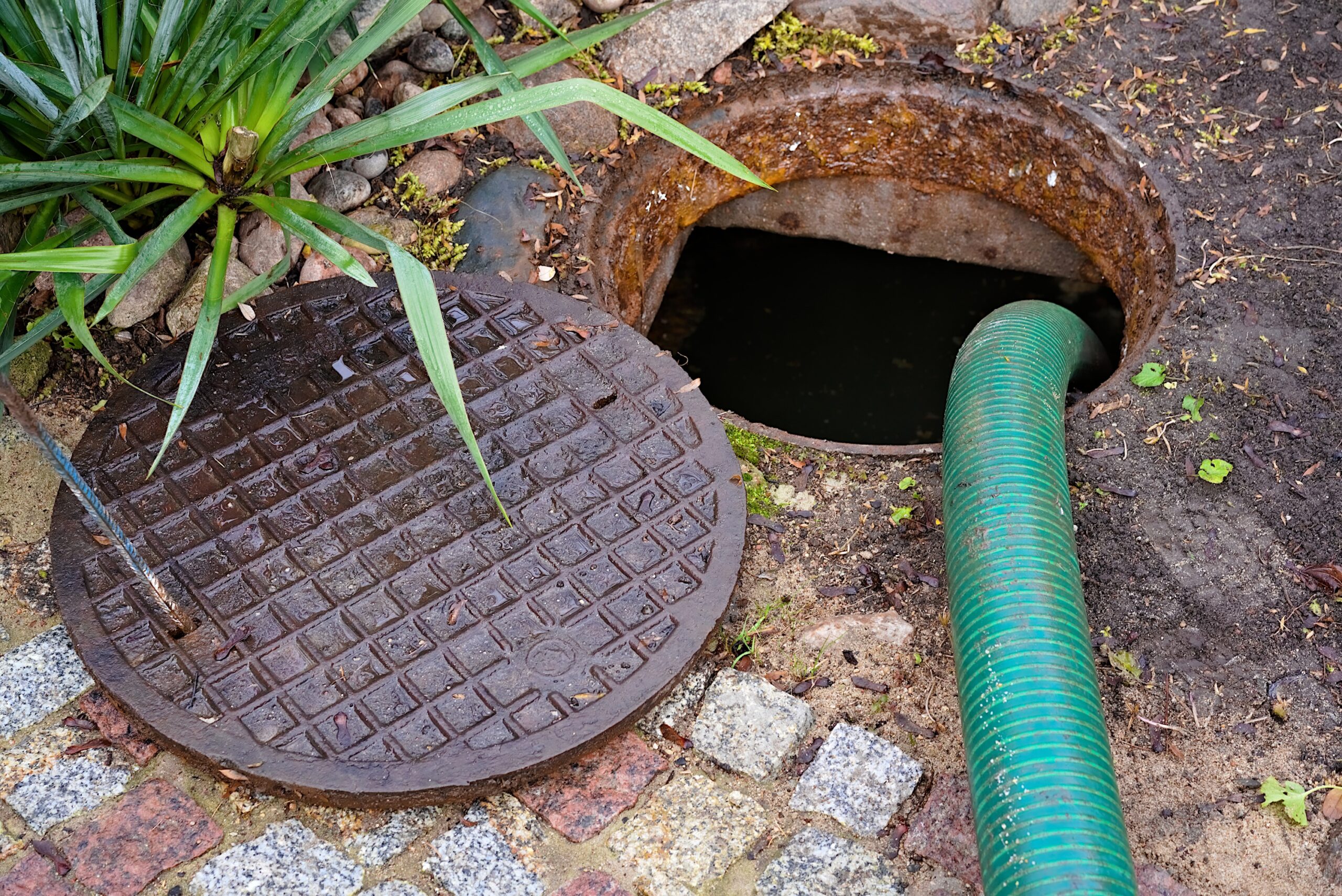
Sewage collecting on ground above drainfield
So you have just discovered that your septic system is failing. Many questions will run through your mind. Your thoughts may be similar to the following …
It’s failing? I can’t believe it. We’ve only been here a few years. The house is only 16 years old. How can it be failing? We don’t use a lot of water. At least I don’t think we do. I guess I never really thought about it.
Septic tank problems? I don’t even know where the septic tank is. How do you get access to it? It’s got to be where that sewage water on the lawn is. That smell is unbelievable. How does a septic system work? I have absolutely no idea.
This is the last thing I want to deal with right now. I’ve got enough on my mind. This can’t be cheap. I don’t have the money for this right now. I wonder if I can finance the cost to repair. It can’t be more than a few hundred dollars, right?
Who do you call? It’ll probably take me weeks to find someone. How will I know if they will do a good job? Wait, I’ll call the guy that pumped the tank last year. He’ll know what to do.
Almost all of the people we talk to ask these questions or tell us they go through this type of thought process. So, it may be of little consolation to you, but you are not the only person to have had to deal with septic problems when you are least able to cope with them. The truth is, thousands of septic systems fail every month in North America and people find a way to deal with the issue.
Before we start talking about what’s best to do, let’s do a little review. From talking to thousands of people with failed septic systems, we have discovered that most failed septic systems have the following in common:
– The septic system is anaerobic.
– The absorption component is a gravity fed drainfield.
– The drainfields are clogged with biomat.
– Symptoms of failure started with slow flowing drains and gradually evolved to backups and ponding on the ground above the drainfield.
– The first person the homeowner calls for advice is their pumper and they first recommend more frequent pumping and, eventually, system replacement.
Unfortunately, the last item on the list is where most people end up. More pumping or system replacement, however, are not your only options. You need to start asking questions and researching the alternative solution to septic system replacement. Don’t expect your pumper or contractor to support you for obvious reasons. But be assured, though, that the alternative works, will save you a lot of money and give you peace of mind to focus on the other issues in your life.











